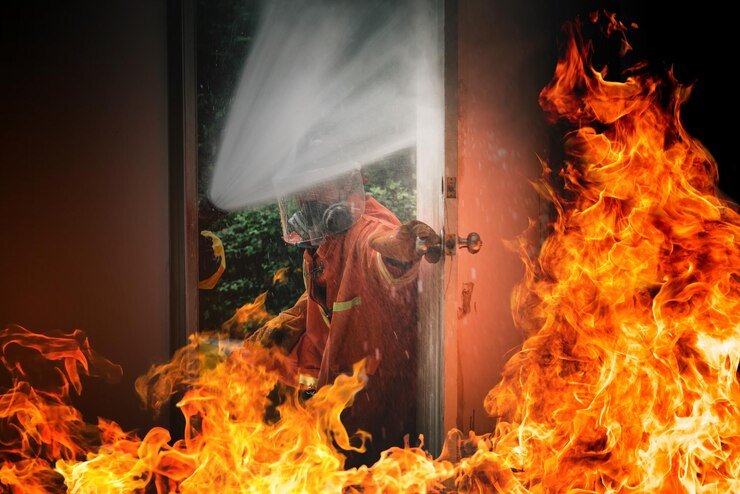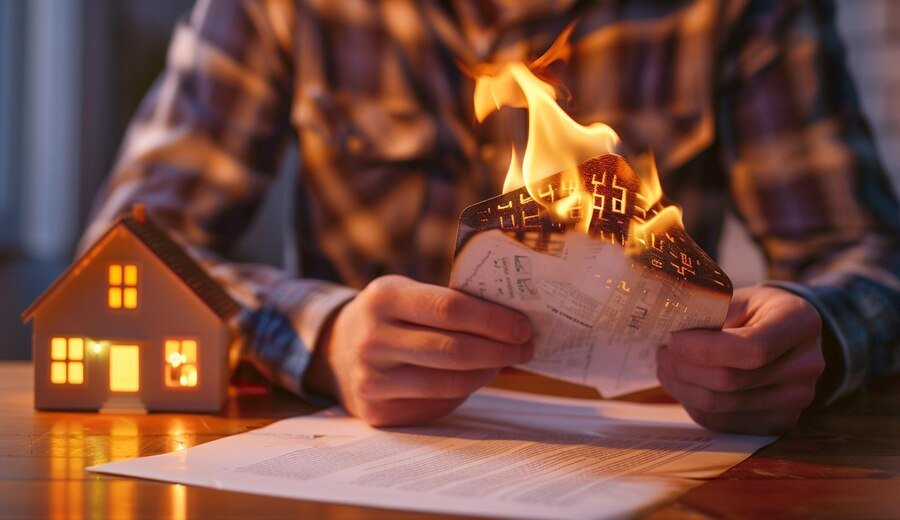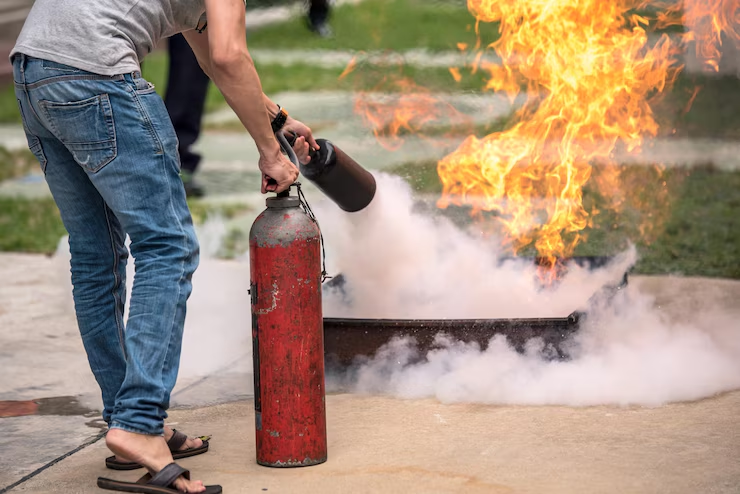Fire insurance is a crucial component of comprehensive property protection, designed to cover losses and damages caused by fire-related incidents. Whether it’s a residential property, commercial establishment, or industrial facility, fire insurance provides financial security, helping policyholders recover from devastating events. This guide explores the fundamentals of fire insurance, including its importance, coverage details, claim process, and tips for selecting the right policy.
1. What is Fire Insurance?

Fire insurance is a contractual agreement between an insurer and a policyholder, where the insurer agrees to compensate for damages caused by fire in exchange for premium payments. It can be purchased as a standalone policy or included as part of a broader property insurance package.
Key Features:
- Covers loss or damage due to fire, lightning, and sometimes explosion.
- May extend to cover allied perils like earthquakes, riots, and floods.
- Provides financial compensation for property repair, reconstruction, or replacement.
2. Importance of Fire Insurance
Fire incidents can result in significant financial setbacks. Fire insurance helps mitigate these risks by:
- Offering financial protection against property damage.
- Ensuring business continuity through quick recovery support.
- Covering additional expenses like temporary relocation costs.
- Providing peace of mind to property owners.
3. Types of Fire Insurance Policies
- Valued Policy: Pre-determined sum insured, paid regardless of the actual loss.
- Specific Policy: Covers loss up to a specific amount, as per the policy limit.
- Floating Policy: Suitable for businesses with multiple locations, covering all properties under one policy.
- Comprehensive Policy: Offers extensive coverage, including fire and other allied perils.
4. What Does Fire Insurance Cover?

- Primary Coverage:
- Damage due to fire, lightning, and explosion.
- Smoke and soot damage.
- Damage caused by water used to extinguish the fire.
- Allied Perils (optional add-ons):
- Earthquakes
- Storms and floods
- Riots and strikes
- Malicious damage
5. Exclusions in Fire Insurance
While fire insurance offers broad protection, certain exclusions apply:
- Intentional damage or arson by the policyholder.
- War, nuclear risks, and terrorism (unless specifically covered).
- Gradual heating, wear and tear.
- Electrical faults without resulting fire.
- Loss of earnings or indirect losses (unless covered under business interruption insurance).
6. How to Choose the Right Fire Insurance Policy
- Assess Your Needs: Consider the type of property, its location, and potential risks.
- Compare Policies: Review coverage limits, exclusions, and premium costs.
- Consider Add-Ons: Customize the policy with optional coverages for broader protection.
- Check Insurer Credibility: Opt for reputable insurance providers with good claim settlement records.
7. The Fire Insurance Claim Process
- Step 1: Notify the Insurer Immediately
- Provide details of the incident, including date, time, and cause.
- Step 2: Document the Damage
- Take photographs and create an inventory of damaged items.
- Step 3: Submit a Claim Form
- Complete the claim form accurately, attaching necessary documents like fire brigade reports and repair estimates.
- Step 4: Survey and Assessment
- The insurer appoints a surveyor to assess the damage and verify the claim.
- Step 5: Claim Settlement
- After verification, the insurer processes the claim and disburses the compensation.
8. Tips for Reducing Fire Insurance Premiums

- Install fire alarms, sprinklers, and extinguishers.
- Maintain proper electrical safety standards.
- Opt for higher deductibles.
- Bundle fire insurance with other policies for discounts.
- Regularly review and update the policy to reflect current property values.
9. Fire Prevention and Safety Measures
- Conduct regular fire drills and safety training.
- Keep flammable materials stored safely.
- Ensure proper maintenance of electrical systems.
- Install fire-resistant building materials where possible.
Also Read : Top 10 Insurance Plans You Need To Consider For Financial Security
Conclusion
Fire insurance is an essential safeguard for property owners, offering financial security against unforeseen fire-related damages. Understanding the types of policies, coverage details, and claim procedures helps in making informed decisions. Regularly reviewing and updating your fire insurance ensures that your property remains adequately protected as circumstances change.
FAQs
1. Is fire insurance mandatory?
No, fire insurance is not mandatory, but it is highly recommended for property owners to protect against potential losses.
2. Can I claim for smoke damage without actual fire?
Yes, many fire insurance policies cover smoke damage, even if there was no direct fire.
3. How is the insurance premium calculated?
Premiums are based on factors like property value, location, construction type, risk assessment, and chosen coverage limits.
4. Does fire insurance cover accidental fires?
Yes, most policies cover accidental fires unless caused by negligence or intentional acts.
5. What documents are needed to file a fire insurance claim?
Claim form, fire brigade report, photographs of the damage, repair estimates, and proof of ownership are commonly required.
6. Can businesses claim for loss of income after a fire?
Loss of income is not covered under standard fire insurance but can be covered through business interruption insurance.
7. Are electrical fires covered?
Yes, if the fire results from an electrical fault, it is typically covered. However, damage to faulty equipment without resulting fire may not be covered.
8. What is underinsurance in fire insurance?
Underinsurance occurs when the insured value is less than the actual property value, leading to reduced claim payouts.
9. How quickly can I expect my claim to be settled?
Claim settlement timelines vary, but insurers aim to process claims within a few weeks after receiving all necessary documentation.
10. Can I transfer my fire insurance policy if I sell the property?
Yes, policies can often be transferred to new owners with the insurer’s consent.
